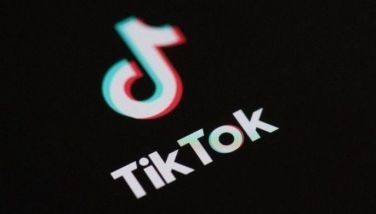Alternative browsers on the Web-front
May 2, 2003 | 12:00am
While Microsoft’s Internet Explorer browser continues to be the leading means for users to surf the Web, it is receiving some competition from a number of up-and-coming browsers which may not be feature-focused but which consume less disk space and resources and boast of speedier surfing and webpage rendering.
The leader of the pack is Mozilla, which is one of the most mature browsers in terms of development and capabilities. Mozilla is the engine that runs Netscape’s Communicator browser which, for many years, was the browser of choice before Internet Explorer overtook it. Prior to Mozilla, it was the Mosaic browser that was Netscape’s main engine. Netscape is still a powerful browser although a bit lacking in certain features.
Mozilla’s greatest strength is its availability for a number of platforms, including Windows, MacOS, Linux, Solaris 8, Open VMS, AIX and HP-UX. The browser also integrates a mail program and offers tabbed browsing, which is an option for surfing multiple pages.
With tabbed browsing, tabs within one window link to different pages, while other browsers would traditionally launch another browser page covering the rest on the screen. Tabbed browsing is an innovative feature that suits users with smaller monitors and desktop real estate. Mozilla also integrates Chatzilla, a chat function built into the interface.
On the downside, since Mozilla is an open source browser being implemented across numerous platforms, there seems to be no end to the revisions and bug fixes that need to take place from time to time. There’s also some level of confusion with integrating some of the multimedia plug-ins and their newer versions. Mozilla also limits connections to certain ports for security purposes, sometimes getting in the way of the surfing experience.
Mozilla has also spawned a number of clones such as Chimera and Camino that offer similar functionality and speed but are platform-dependent to MacOS as well as for assorted flavors of Linux.
Mozilla remains to be one of the more customizable browsers around; you can design it to look different and substitute its skin as well.
One of the more refined alternative browsers is Opera which runs on Windows, Linux, MacOS, OS/2, Solaris, FreeBSD, QNX and the portable Symbian operating system which, in turn, runs on PDAs and phones like Nokia’s 7650 and Sony Ericsson’s P800 SmartPhone.
Claiming to be the fastest browser (a claim similar to the one Apple is making with its proprietary OS X browser Safari), Opera seems to travel well between platforms although testing it on older machines, there were noticeable problems resizing the pages as well as redrawing webpages.
One of Opera’s crowning achievements is that it can stop surprise pop-up windows from appearing, which is one of the problems encountered by surfers today, particularly those visiting marketing-intensive websites. If only other browsers could make this option more easily available and configurable to new users, then the experience of trawling the Web for news and images would be painless.
Opera is available as freeware but with online advertisements. There is a version available for online purchase without the dreaded ads.
There are a number of other browsers still quite in their early development. Surfing the Web for alternative browsers to Internet Explorer and Netscape Communicator will most likely yield a list of fanciful yet cryptic names like Lynx, HotJava, Emacs/W3, MMM, Grail, Plume, OmniWeb, JoZilla and Amaya.
There may well be more but still in their very infant stages of development. For most users, whichever browser works best in their current set-ups should be the one they would stick to. Owners of newer machines will be able to enjoy Internet Explorer’s advanced technology and multimedia savvy but owners of older machines may be fine using earlier incarnations or even some of these alternative browsers.
The leader of the pack is Mozilla, which is one of the most mature browsers in terms of development and capabilities. Mozilla is the engine that runs Netscape’s Communicator browser which, for many years, was the browser of choice before Internet Explorer overtook it. Prior to Mozilla, it was the Mosaic browser that was Netscape’s main engine. Netscape is still a powerful browser although a bit lacking in certain features.
With tabbed browsing, tabs within one window link to different pages, while other browsers would traditionally launch another browser page covering the rest on the screen. Tabbed browsing is an innovative feature that suits users with smaller monitors and desktop real estate. Mozilla also integrates Chatzilla, a chat function built into the interface.
On the downside, since Mozilla is an open source browser being implemented across numerous platforms, there seems to be no end to the revisions and bug fixes that need to take place from time to time. There’s also some level of confusion with integrating some of the multimedia plug-ins and their newer versions. Mozilla also limits connections to certain ports for security purposes, sometimes getting in the way of the surfing experience.
Mozilla has also spawned a number of clones such as Chimera and Camino that offer similar functionality and speed but are platform-dependent to MacOS as well as for assorted flavors of Linux.
Mozilla remains to be one of the more customizable browsers around; you can design it to look different and substitute its skin as well.
Claiming to be the fastest browser (a claim similar to the one Apple is making with its proprietary OS X browser Safari), Opera seems to travel well between platforms although testing it on older machines, there were noticeable problems resizing the pages as well as redrawing webpages.
One of Opera’s crowning achievements is that it can stop surprise pop-up windows from appearing, which is one of the problems encountered by surfers today, particularly those visiting marketing-intensive websites. If only other browsers could make this option more easily available and configurable to new users, then the experience of trawling the Web for news and images would be painless.
Opera is available as freeware but with online advertisements. There is a version available for online purchase without the dreaded ads.
There may well be more but still in their very infant stages of development. For most users, whichever browser works best in their current set-ups should be the one they would stick to. Owners of newer machines will be able to enjoy Internet Explorer’s advanced technology and multimedia savvy but owners of older machines may be fine using earlier incarnations or even some of these alternative browsers.
BrandSpace Articles
<
>
- Latest
Latest
Latest
January 19, 2025 - 10:05am
By Alex Pigman | January 19, 2025 - 10:05am
January 6, 2025 - 11:05pm
January 6, 2025 - 11:05pm
December 1, 2024 - 3:59pm
December 1, 2024 - 3:59pm
November 18, 2024 - 12:00am
November 18, 2024 - 12:00am
Recommended





























